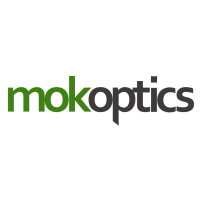Laser lenses play a vital role in numerous applications, from industrial manufacturing to scientific research, in our daily lives. For anyone working with laser technology, understanding the nuances of laser lenses, including their types and applications, is crucial.

Introduction to Laser Lenses
Laser technology has revolutionized many industries, from healthcare to telecommunications. Laser lenses are core components of many laser devices, playing a key role in manipulating laser beams for specific applications. Whether focusing a laser beam into a tiny spot or converting it into a uniform straight line, laser lenses are indispensable components. This article delves into the complex structure of laser lenses, providing a comprehensive overview of their types and applications.
Understanding Laser Lenses
Laser lenses are optical elements used to manipulate laser beams. They are widely used in a variety of laser applications, such as laser illumination, collimation, scanning, dimensional measurement, materials processing, welding, cutting, tracking, and pattern generation. The versatility of laser lenses makes them a key component in many laser systems.
Types of Laser Lenses
Spherical Lenses: These lenses have a spherical surface used to focus or diverge laser beams. They are often used in applications requiring beam shaping. Aspherical Lenses: Unlike spherical lenses, aspherical lenses have aspherical surfaces, which reduce optical aberrations and improve focusing. They are ideal for applications requiring high precision.
Cylindrical Lenses: These lenses are used to focus light into a line or change the aspect ratio of a beam. They are commonly used in laser line generation and scanning applications.
Conical Lenses: Conical lenses are tapered lenses used to convert laser beams into ring-shaped beams or generate diffraction-free beams. They are very useful in applications such as laser drilling and optical tweezers.
Powell Lenses: Powell lenses are used to convert collimated laser beams into straight beams with uniform energy distribution. They are superior to cylindrical lenses for applications requiring high-quality laser lines.
Laser Lens Coatings
Laser lenses are available with or without anti-reflective coatings. These coatings minimize reflections and enhance laser transmittance through the lens, thereby improving system efficiency.
Laser Lens Applications
Laser lenses are an indispensable component of a wide range of applications, each requiring a specific type of lens to achieve the desired effect. Here are some common applications:
1. Laser Focusing
Laser focusing lenses are used to concentrate a laser beam into a very small spot. This is crucial in applications requiring extremely high precision and strength, such as laser cutting and welding. The focal length of the focusing lens depends on factors such as the input laser beam size, the spot size, and the required depth of focus.
2. Laser Collimation
Laser collimating lenses collimate the beam generated by a laser source, ensuring the beam remains parallel over long distances. This is crucial in applications such as laser scanning and tracking. The focal length of the collimating lens is determined by the laser divergence angle and the required beam diameter.
3. Laser Line Generation
Laser line generator lenses (such as Powell lenses) convert a collimated laser beam into a straight line. This is particularly useful in applications such as machine vision and alignment systems. Compared to standard cylindrical lenses, Powell lenses provide a more uniform energy distribution.
4. Optical Lenses in Laser Diodes
Laser diodes typically integrate optical lenses to shape and guide the laser beam. These lenses are crucial in applications such as laser pointers, barcode scanners, and optical communication systems.
Conclusion
In summary, laser lenses are key components in a wide range of laser applications. Understanding their types, functions, and applications can significantly improve the performance and efficiency of laser systems. Whether you are involved in industrial manufacturing, scientific research, or optical communications, knowledge of laser lenses is essential. For more information, please contact MOK Optics.
